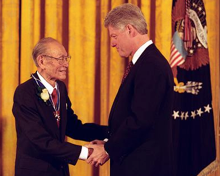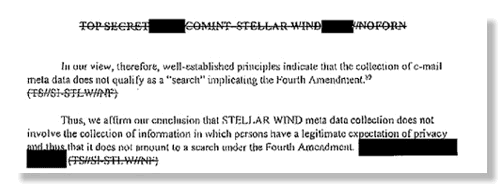NSA's STELLAR WIND Program: What Did FCC Know and When?
The above section of a memo from the DOJ Office of Legal Counsel is authorization for unprecedented data collection of communications by NSA. There are actually 2 memos: A 76 page May 2004 memo and a 9 page July 2004 memo. Did FCC see these memos or participate in their drafting? There is no public documentary evidence that FCC was involved. However, these memos authorize unprecedented activities by FCC-regulated carriers to cooperate with NSA. Based on my experience it is unlikely that the major carriers would have participated unless they had some indication from FCC, perhaps a nod at a meeting, not necessarily a memo.
While the DOJ IG is limited in his authority to investigate “intelligence or counterintelligence matters; or) other matters the disclosure of which would constitute a serious threat to national security.” under the terms of 5 USC App. 8E, the FCC IG is under no such statutory limitation.
So
- Did the FCC Chairman know about STELLAR WIND and the DOJ opinions?
- Did the other FCC commissioners know about these?
- Did FCC communicate in some way to the major carriers that they should cooperate with NSA?
- Did it occur to the FCC IG to wonder if these were legal?
- As an independent agency was it proper for FCC, if it knew, to question the legality?
Fred Korematsu being awarded the
Presidential Medal of Freedom in 1998

Fly and Sterling had the moral courage to question a wartime national security issue within the FCC’s jurisdiction and competence. Did the early Bush 43-era FCC have similar moral courage?




![Validate my RSS feed [Valid RSS]](valid-rss-rogers.png)

